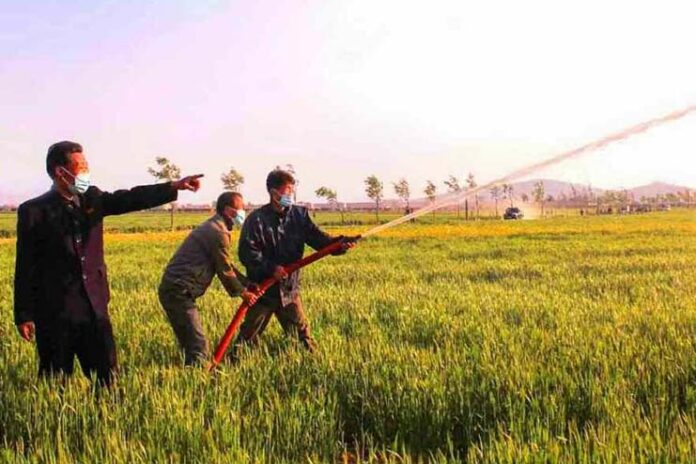
North Korean authorities recently distributed lecture material calling for the “full concentration” of the country’s labor force on weeding fields.
According to a Daily NK source in the country last Thursday, the material, entitled “Let’s qualitatively complete weeding fields at the right time by fully focusing all our capacity,” emphasized that all North Koreans would be mobilized to resolve the nation’s food shortages.
In essence, North Korea is calling for an “all out war” against weeds with a view to raise agricultural production. This battle against weeds comes as the country deals with a food crisis brought on by the protracted closure of the border due to COVID-19.
“Finishing weeding at the right time is an important agricultural process that must not be missed during the year’s farming,” the lecture material said, adding, “If we are late in weeding, grain yields fall, creating major problems in achieving the party’s grain production targets for this year.”
The lecture material went on to say that, “The party is calling for mobilizing more people for weeding, even if just by a single person, by scouring as many sources of labor for agricultural support from government agencies and enterprises as possible.”
The material also pointed out that, “Officials, workers and people at many workplaces have been avoiding agricultural support activities using work as an excuse,” and that, “In a manner inappropriate for the agricultural support period, people are unnecessarily out in the streets doing business activities outside of times allotted for those activities.”
In short, North Korean authorities are aware that labor shortages could hinder efforts to achieve the country’s grain production goals for the year, and have begun once again to emphasize the importance of sending labor to agricultural areas.
The lecture material called on all workers deployed to farm fields to complete the fourth round of weeding by the end of June. It also called on workplaces excluded from agricultural support efforts to fully mobilize as much labor as they can to help with weeding efforts on Fridays and Sundays.
Yet many North Koreans are unhappy about the government’s efforts to get more people out in the farm fields, according to the source.
“Party members and workers are not avoiding mobilizations to the farm fields because they’re unaware of the party’s ideology or intentions,” said the source. “When people are suffering food shortages due to emergency quarantine efforts in agricultural villages, not to mention cities, who would listen to government orders?”
The lecture material also called for strict compliance with guidelines pertaining to emergency quarantine efforts. These guidelines include disinfecting the accommodations, dining spaces and agricultural tools used by agricultural workers, and conducting temperature checks.
Translated by David Black. Edited by Robert Lauler.
Please direct any comments or questions about this article to dailynkenglish@uni-media.net.

















